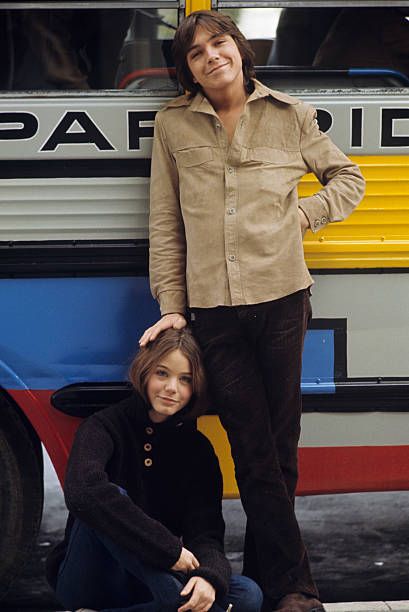
An Anthem for the Lonely Heart, Longing for Connection
Ah, to cast our minds back to the early 1970s, a time when pop music truly began to weave itself into the fabric of daily life, particularly for the burgeoning youth culture. It was an era of bright colors, emerging individualism, and, for many, the undeniable charm of David Cassidy. While his face adorned countless teenage bedroom walls and his voice dominated the airwaves, there’s one particular song that, for those of us who lived through that vibrant period, evokes a special kind of warmth and a touch of wistful remembrance: “Sing Me.” Released in 1974, this gentle ballad, a testament to the enduring power of a simple melody and heartfelt lyrics, found its footing on the charts, reaching a respectable No. 9 in the UK, a testament to its widespread appeal and Cassidy‘s continued grip on the popular imagination.
But “Sing Me” isn’t just about chart positions or the fleeting fame of a teen idol. It’s a tender, almost vulnerable plea, a whispered conversation between a lonely soul and the comforting presence of music. The story behind the song, while not as dramatic as some rock anthems, is rooted in the very essence of David Cassidy‘s appeal. He was, at the height of his fame, an almost impossibly busy individual, constantly touring, recording, and filming “The Partridge Family.” Beneath the dazzling smile and the boundless energy was a young man navigating the often isolating world of superstardom. This song, co-written by David Cassidy himself and Barry Mann, feels like a direct reflection of that internal world. It’s not hard to imagine Cassidy, perhaps after a grueling day, seeking solace in the very art form that made him famous. The lyrics speak of a quiet desperation for understanding, a desire for someone to “sing me a song that will make me happy, make me forget the tears.” It’s a sentiment that resonates deeply with anyone who has ever felt overwhelmed or simply in need of a comforting presence.
The meaning of “Sing Me” transcends its initial context. On the surface, it’s a simple love song, a request for a serenade. Yet, delve a little deeper, and you discover a profound exploration of human connection, of the solace found in shared experience, and the unique healing power of music. It’s about finding an escape, a moment of respite from the trials and tribulations of life, through the beauty of a melody and the truth of a lyric. For many, especially those of us looking back on our younger days, the song became an anthem for those quiet moments of introspection, a gentle reminder that even in loneliness, there’s always the possibility of finding comfort in art, or in the voice of someone who understands. It’s a song that acknowledges the melancholy that can sometimes cling to our hearts, but offers a hopeful antidote.
Beyond its lyrical depth, the arrangement of “Sing Me” is what truly allows it to seep into the listener’s memory. It’s not a bombastic track, but rather a subtly layered piece, allowing Cassidy‘s earnest vocals to take center stage. The gentle acoustic guitar, the swelling strings, and the understated percussion all contribute to an atmosphere of intimacy and genuine emotion. It feels like a lullaby for the weary, a warm embrace in musical form. For those of us who grew up with David Cassidy, “Sing Me” wasn’t just another hit; it was a companion. It played on car radios during long summer drives, on record players during quiet evenings, and on transistor radios held close under the covers. It became part of the soundtrack of our formative years, a melodic marker of innocence, longing, and the simple beauty of a song that could, for a few precious minutes, make everything alright. And even now, when those opening chords drift through the air, a gentle tide of nostalgia washes over us, reminding us of a simpler time, and of the enduring power of a voice that asked, so tenderly, to simply be sung to.